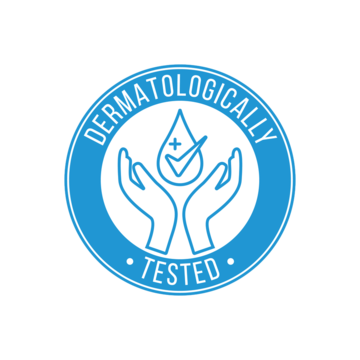
DERMATOLOGICAL SAFETY TESTS
Dermatological safety testing is a series of tests conducted to evaluate whether cosmetic products, personal care products, and even some medical devices are safe when they come into contact with the skin. These tests aim to determine the potential of products to cause irritation, allergic reactions, or toxic reactions.
Why are Dermatological Safety Tests Important?
Protecting Consumer Health: Skin is the largest organ of the body and acts as an important barrier against external factors. Unsafe products can cause skin irritation, allergies, and even more serious health problems.
Ensuring Product Safety: Manufacturers are obligated to prove that their products are safe and do not pose a risk to consumers.
Complying with Legal Requirements: In many countries, it is a legal requirement for cosmetic products to undergo certain safety tests before being placed on the market.
Protecting Brand Reputation: Producing safe products is important for maintaining brand reputation and consumer trust.
Increasing Consumer Confidence: Dermatologically tested products provide consumers with an extra level of assurance.
What do Dermatological Safety Tests Cover?
Dermatological safety tests generally evaluate the following:
Skin Irritation: Determines whether the product causes irritation symptoms on the skin such as redness, itching, burning, and stinging.
Skin Sensitization: Assesses the potential of the product to cause allergic contact dermatitis after repeated applications.
Eye Irritation: Determines whether the product causes irritation if it comes into contact with the eyes.
Phototoxicity and Photoallergy: Evaluates whether the product interacts with sunlight to cause toxic or allergic reactions on the skin.
Comedogenicity: Determines the potential of the product to clog pores and cause acne formation.


Dermatological safety testing is a series of tests conducted to evaluate whether cosmetic products, personal care products, and even some medical devices are safe when they come into contact with the skin. These tests aim to determine the potential of products to cause irritation, allergic reactions, or toxic reactions.
Why are Dermatological Safety Tests Important?
Protecting Consumer Health: Skin is the largest organ of the body and acts as an important barrier against external factors. Unsafe products can cause skin irritation, allergies, and even more serious health problems.
Ensuring Product Safety: Manufacturers are obligated to prove that their products are safe and do not pose a risk to consumers.
Complying with Legal Requirements: In many countries, it is a legal requirement for cosmetic products to undergo certain safety tests before being placed on the market.
Protecting Brand Reputation: Producing safe products is important for maintaining brand reputation and consumer trust.
Increasing Consumer Confidence: Dermatologically tested products provide consumers with an extra level of assurance.
What do Dermatological Safety Tests Cover?
Dermatological safety tests generally evaluate the following:
Skin Irritation: Determines whether the product causes irritation symptoms on the skin such as redness, itching, burning, and stinging.
Skin Sensitization: Assesses the potential of the product to cause allergic contact dermatitis after repeated applications.
Eye Irritation: Determines whether the product causes irritation if it comes into contact with the eyes.
Phototoxicity and Photoallergy: Evaluates whether the product interacts with sunlight to cause toxic or allergic reactions on the skin.
Comedogenicity: Determines the potential of the product to clog pores and cause acne formation.
Contact Us to Begin Your Dermatological Safety Testing Process.
We offer affordable and effective solutions tailored to your needs.
The information presented on this website does not constitute legal advice and is intended for informational purposes only. KompassEurope.com.tr assumes no responsibility for any errors or omissions in the information contained on this website. Any decisions made or actions taken by the reader based on this information are solely at the reader's own risk, and KompassEurope.com.tr shall not be held liable for any legal consequences arising from such decisions or actions. Readers are strongly advised to seek professional legal counsel regarding their specific circumstances and concerns.
© 2025 Kompass Europe. All rights reserved. The contents of this website belong to Kompass Europe and are protected by copyright laws. Copying, publishing, distributing or any commercial use of the information on the website is possible only with written permission. By using this site, you agree to our Terms of Use and Privacy Policy.
